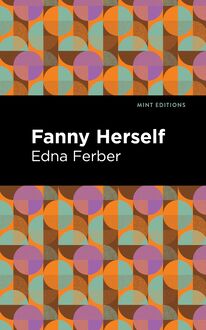-
 Univers
Univers
-
 Ebooks
Ebooks
-
 Livres audio
Livres audio
-
 Presse
Presse
-
 Podcasts
Podcasts
-
 BD
BD
-
 Documents
Documents
-
- Cours
- Révisions
- Ressources pédagogiques
- Sciences de l’éducation
- Manuels scolaires
- Langues
- Travaux de classe
- Annales de BEP
- Etudes supérieures
- Maternelle et primaire
- Fiches de lecture
- Orientation scolaire
- Méthodologie
- Corrigés de devoir
- Annales d’examens et concours
- Annales du bac
- Annales du brevet
- Rapports de stage
La lecture à portée de main
Vous pourrez modifier la taille du texte de cet ouvrage
Découvre YouScribe en t'inscrivant gratuitement
Je m'inscrisDécouvre YouScribe en t'inscrivant gratuitement
Je m'inscrisEn savoir plus
Vous pourrez modifier la taille du texte de cet ouvrage
En savoir plus

Description
Ghetto Comedies (1907) is a collection of stories by Israel Zangwill. Raised in London by parents from Latvia and Poland, Zangwill understood the plight of the city’s Jewish community firsthand. Having risen through poverty to become an educator and author, he dedicated his career to the voiceless, the oppressed, and the needy, advocating for their rights and bearing witness to their suffering in some of the most powerful novels and stories of the Victorian era. “People who have been living in a Ghetto for a couple of centuries, are not able to step outside merely because the gates are thrown down, nor to efface the brands on their souls by putting off the yellow badges. The isolation imposed from without will have come to seem the law of their being.” As a Jewish immigrant who grew up in poverty in London, Israel Zangwill knows that the condition of life in the ghetto changes not just lives, but mentalities. In the fifth and final installment of his Ghetto series, Zangwill imagines the lives of everyday Jewish people. A German painter searches for a Jewish model for his painting of Jesus Christ; Solomon Cohen, or S. Cohn, rises to prominence as a Town Councillor in Sudminster while suppressing his Jewish heritage; Bloomah Beckenstein, a young Jewish girl, is blamed for spreading smallpox at her school in London. These are the lives that take shape in the author’s skillful hands, people whose experiences with love, loss, doubt, and faith are not so different from our own. The tales of Jewish life in Ghetto Comedies earned Zangwill comparisons to Dickens upon publication and helped to establish him as an author with a gift for intensive character study and a passion for political themes. With a beautifully designed cover and professionally typeset manuscript, this edition of Israel Zangwill’s Ghetto Comedies is a classic of British literature reimagined for modern readers.
Sujets
Informations
| Publié par | Mint Editions |
| Date de parution | 12 octobre 2021 |
| Nombre de lectures | 0 |
| EAN13 | 9781513214436 |
| Langue | English |
| Poids de l'ouvrage | 1 Mo |
Informations légales : prix de location à la page 0,0500€. Cette information est donnée uniquement à titre indicatif conformément à la législation en vigueur.
Extrait
Ghetto Comedies
Israel Zangwill
Ghetto Comedies was first published in 1907.
This edition published by Mint Editions 2021.
ISBN 9781513216430 | E-ISBN 9781513214436
Published by Mint Editions®
minteditionbooks.com
Publishing Director: Jennifer Newens
Design & Production: Rachel Lopez Metzger
Project Manager: Micaela Clark
Typesetting: Westchester Publishing Services
C ONTENTS
I . T HE M ODEL OF S ORROWS
II . A NGLICIZATION
III . T HE S ABBATH Q UESTION IN S UDMINSTER
IV . T HE R ED M ARK
V . T HE B EARER OF B URDENS
VI . T HE L UFTMENSCH
VII . T HE T UG OF L OVE
VIII . T HE Y IDDISH “ H AMLET”
IX . T HE C ONVERTS
X . H OLY W EDLOCK
XI . E LIJAH’S G OBLET
XII . T HE H IRELINGS
XIII . S AMOOBORONA
I
T HE M ODEL OF S ORROWS
I
How I Found the Model
I CANNOT PRETEND THAT MY ambition to paint the Man of Sorrows had any religious inspiration, though I fear my dear old dad at the Parsonage at first took it as a sign of awakening grace. And yet, as an artist, I have always been loath to draw a line between the spiritual and the beautiful; for I have ever held that the beautiful has in it the same infinite element as forms the essence of religion. But I cannot explain very intelligibly what I mean, for my brush is the only instrument through which I can speak. And if I am here paradoxically proposing to use my pen to explain what my brush failed to make clear, it is because the criticism with which my picture of the Man of Sorrows has been assailed drives me to this attempt at verbal elucidation. My picture, let us suppose, is half-articulate; perhaps my pen can manage to say the other half, especially as this other half mainly consists of things told me and things seen.
And in the first place, let me explain that the conception of the picture which now hangs in its gilded frame is far from the conception with which I started—was, in fact, the ultimate stage of an evolution—for I began with nothing deeper in my mind than to image a realistic Christ, the Christ who sat in the synagogue of Jerusalem, or walked about the shores of Galilee. As a painter in love with the modern, it seemed to me that, despite the innumerable representations of Him by the masters of all nations, few, if any, had sought their inspiration in reality. Each nation had unconsciously given Him its own national type, and though there was a subtle truth in this, for what each nation worshipped was truly the God made over again in its own highest image, this was not the truth after which I was seeking.
I started by rejecting the blonde, beardless type which Da Vinci and others have imposed upon the world, for Christ, to begin with, must be a Jew. And even when, in the course of my researches for a Jewish model, I became aware that there were blonde types, too, these seemed to me essentially Teutonic. A characteristic of the Oriental face, as I figured it, was a sombre majesty, as of the rabbis of Rembrandt, the very antithesis of the ruddy gods of Walhalla. The characteristic Jewish face must suggest more of the Arab than of the Goth.
I do not know if the lay reader understands how momentous to the artist is his model, how dependent he is on the accident of finding his creation already anticipated, or at least shadowed forth, in Nature. To me, as a realist, it was particularly necessary to find in Nature the original, without which no artist can ever produce those subtle nuances which give the full sense of life. After which, if I say, that my aim is not to copy, but to interpret and transfigure, I suppose I shall again seem to be self-contradictory. But that, again, must be put down to my fumbling pen-strokes.
Perhaps I ought to have gone to Palestine in search of the ideal model, but then my father’s failing health kept me within a brief railway run of the Parsonage. Besides, I understood that the dispersion of the Jews everywhere made it possible to find Jewish types anywhere, and especially in London, to which flowed all the streams of the Exile. But long days of hunting in the Jewish quarter left me despairing. I could find types of all the Apostles, but never of the Master.
Running down one week-end to Brighton to recuperate, I joined the Church Parade on the lawns. It was a sunny morning in early November, and I admired the three great even stretches of grass, sea, and sky, making up a picture that was unspoiled even by the stuccoed boarding-houses. The parasols fluttered amid the vast crowd of promenaders like a swarm of brilliant butterflies. I noted with amusement that the Church Parade was guarded by beadles from the intrusion of the ill-dressed, and the spectacle of over-dressed Jews paradoxically partaking in it reminded me of the object of my search. In vain my eye roved among these; their figures were strangely lacking in the dignity and beauty which I had found among the poorest. Suddenly I came upon a sight that made my heart leap. There, squatting oddly enough on the pavement-curb of a street opposite the lawns, sat a frowsy, gaberdined Jew. Vividly set between the tiny green cockle-shell hat on his head and the long uncombed black beard was the face of my desire. The head was bowed towards the earth; it did not even turn towards the gay crowd, as if the mere spectacle was beadle-barred. I was about to accost this strange creature who sat there so immovably, when a venerable Royal Academician who resides at Hove came towards me with hearty hand outstretched, and bore me along in the stream of his conversation and geniality. I looked back yearningly; it was as if the Academy was dragging me away from true Art.
“I think, if you don’t mind, I’ll get that old chap’s address,” I said.
He looked back and shook his head in laughing reproof.
“Another study in dirt and ugliness! Oh, you youngsters!”
My heart grew hot against his smug satisfaction with his own conventional patterns and prettinesses.
“Behind that ugliness and dirt I see the Christ,” I retorted. “I certainly did not see Him in the Church Parade.”
“Have you gone on the religious lay now?” he asked, with a burst of his bluff laughter.
“No, but I’m going,” I said, and turned back.
I stood, pretending to watch the gay parasols, but furtively studying my Jew. Yes, in that odd figure, so strangely seated on the pavement, I had chanced on the very features, the haunting sadness and mystery of which I had been so long in quest. I wondered at the simplicity with which he was able to maintain a pose so essentially undignified. I told myself I beheld the East squatted broodingly as on a divan, while the West paraded with parasol and Prayer-Book. I wondered that the beadles were unobservant of him. Were they content with his abstention from the holy ground of the Church Parade, and the less sacred seats on the promenade without, or would they, if their eyes drew towards him, move him on from further profaning those frigidly respectable windows and stuccoed portals?
At last I said: “Good-morning.” And he rose hurriedly and began to move away uncomplainingly, as one used to being hounded from everywhere.
“ Guten Morgen ,” I said in German, with a happy inspiration, for in my futile search in London I had found that a corrupt German called Yiddish usually proved a means of communication.
He paused, as if reassured. “ Gut’ Morgen ,” he murmured; and then I saw that his stature was kingly, like that of the sons of Anak, and his manner a strange blend of majesty and humility.
“Pardon me,” I went on, in my scrupulously worst German, “may I ask you a question?”
He made a curious movement of acquiescence, compounded of a shrug and a slight uplifting of his palms.
“Are you in need of work?”
“And why do you wish to know?” he replied, answering, as I had already found was the Jewish way, one question by another.
“I thought I could find you some,” I said.
“Have you scrolls of the Law for me to write?” he replied incredulously. “You are not even a Jew.”
“Still, there may be something,” I replied. “Let us walk along.”
I felt that the beadle’s eye was at last drawn to us both, and I hurried my model down a side-street. I noticed he hobbled as if footsore. He did not understand what I wanted, but he understood a pound a week, for he was starving, and when I said he must leave Brighton for London, he replied, awe-struck: “It is the finger of God.” For in London were his wife and children.
His name was Israel Quarriar, his country Russia.
The picture was begun on Monday morning. Israel Quarriar’s presence dignified the studio. It was thrilling and stimulating to see his noble figure and tragic face, the head drooped humbly, the beard like a prophet’s.
“It is the finger of God,” I, too, murmured, and fell to work, exalted.
I worked, for the most part, in rapt silence—perhaps the model’s silence was contagious—but gradually through the days I grew to communion with his shy soul, and piecemeal I learnt his sufferings. I give his story, so far as I can, in his own words, which I often paused to take down, when they were characteristic.
II
The Model’s Story
I CAME HERE BECAUSE R USSIA had grown intolerable to me. All my life, and during the lives of my parents, we Quarriars had been innkeepers, and thereby earned our bread. But Russia took away our livelihood for herself, and created a monopoly. Thus we were left destitute. So what could I do with a large family? Of London and America I had long heard as places where they have compassion on foreigners. They are not countries like Russia, where Truth exists not. Secondly, my children also worried me greatly. They are females, all the five, and a female in Russia, however beautiful, good and clever she be, if she have no dowry, has to accept any offer of marriage, however uncongenial the man may be. These things conspired to drive me from Russia. So I turned everything into money, and realized three hundred and fifty roubles. People had told me that the whole journey to Lon
-
 Univers
Univers
-
 Ebooks
Ebooks
-
 Livres audio
Livres audio
-
 Presse
Presse
-
 Podcasts
Podcasts
-
 BD
BD
-
 Documents
Documents
-
Jeunesse
-
Littérature
-
Ressources professionnelles
-
Santé et bien-être
-
Savoirs
-
Education
-
Loisirs et hobbies
-
Art, musique et cinéma
-
Actualité et débat de société
-
Jeunesse
-
Littérature
-
Ressources professionnelles
-
Santé et bien-être
-
Savoirs
-
Education
-
Loisirs et hobbies
-
Art, musique et cinéma
-
Actualité et débat de société
-
Actualités
-
Lifestyle
-
Presse jeunesse
-
Presse professionnelle
-
Pratique
-
Presse sportive
-
Presse internationale
-
Culture & Médias
-
Action et Aventures
-
Science-fiction et Fantasy
-
Société
-
Jeunesse
-
Littérature
-
Ressources professionnelles
-
Santé et bien-être
-
Savoirs
-
Education
-
Loisirs et hobbies
-
Art, musique et cinéma
-
Actualité et débat de société
- Cours
- Révisions
- Ressources pédagogiques
- Sciences de l’éducation
- Manuels scolaires
- Langues
- Travaux de classe
- Annales de BEP
- Etudes supérieures
- Maternelle et primaire
- Fiches de lecture
- Orientation scolaire
- Méthodologie
- Corrigés de devoir
- Annales d’examens et concours
- Annales du bac
- Annales du brevet
- Rapports de stage















